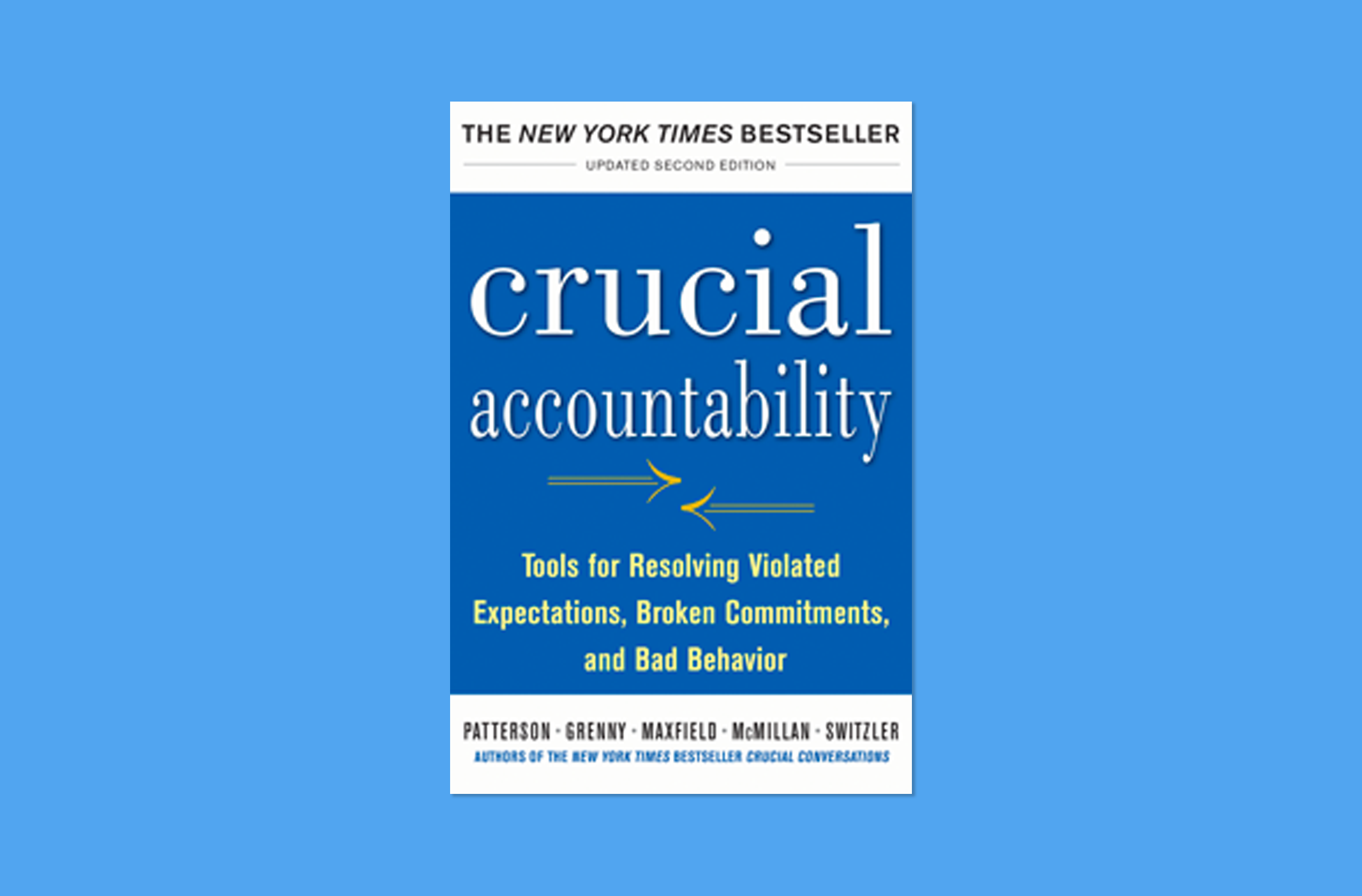
“Crucial Accountability” by Kerry Patterson, Joseph Grenny, David Maxfield, Ron McMillan, and Al Switzler
Ranking: 4/5
I’ll start with a scenario…you prepare for a tough conversation (at work or at home or in a dog park…yes, there is a story there), you have the tough conversation, the other person responds better than expected, you breathe a sigh of relief, and then a few weeks later the old behaviour pattern returns. What just happened? If this is a scenario you have ever found yourself in (and I know that I have), then this book is for you.
I would categorize this book as a practical/how to book (it is a companion book to, “Crucial Conversations”). It is a how to book for learning and practicing accountability discussions before, during, and after an interaction takes place. Where you are in your own skills development will inform how you read this book. If this is a refresher, you can use it as a reference book and jump around. But if these concepts are newer to you, I recommend reading the book from beginning to end as there is a general flow of ideas to consider when prepping for an accountability conversation. Get a hard copy, mark it up and write in it. It will become a great reference book after you have read it once.
This is also a practical book. It is written in a way that is easy to follow and digest. Each chapter focuses on a key principle and includes a lot of examples (i.e., stories) to illustrate the points. The examples are both professional and personal in nature. Then there is a chapter that pulls the principles together with one real life example. And finally, this is followed by a chapter of “yeah buts,” for readers who might be questioning the approach or having a hard time imagining how these skills apply to them.
My practical takeaways from this book:
- Start with you! Know what conversation to hold and if you should hold it; your frame of mind matters.
- The Six Sources of Influence is a helpful framework (I love a good framework!) for considering the root causes of behaviour; considers motivation AND ability in the context of personal, social, and structural sources
- Create safety through mutual respect and mutual purpose
- Some great sample questions: “So what happened?” “What do you think it will take?”
- Accountability is NOT a linear process; stay focused and flexible
- You don’t have to change everything, just a few things, and maybe be a bit more consistent